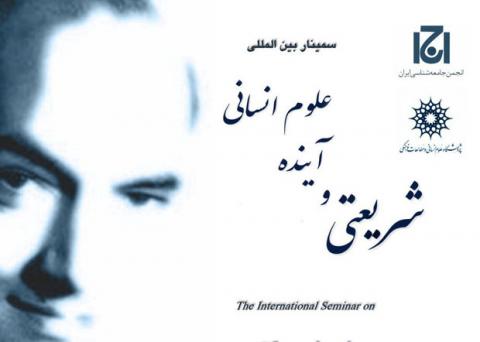
The event was attended by several Iranian and foreign lecturers including Shariati’s son, daughter, wife as well as distinguished professors. The ceremony kicked off with a speech deliver by the son of Shariati, Ehsan and was followed by the lecture of Sara, the daughter of late Shariati, both academicians.
She talked about ‘Shariati and the literature of pain’ saying “understanding the thoughts of a region’s scholars is not possible but through studying their personal life and history. Writer Mohammad Abed Jaberi said that the Arabic civilization created the specific literature of pain, as a result of opposing the opinions of their rulers which caused lots of hardships for them. In Arabic, Jaberi translated ‘pain’ as ‘examination’ which has its origins in political and religious power. He believes that the lives of elites and scholars in the Islamic civilization narrate pain and sorrow."
“However in Shariati’s doctrine, sorrow was not only included in politics and religions but also in differentiating ‘social responsibilities’ and ‘human’s nature’. He was among the rare figures who has mostly written about himself,” she added. “Shariati’s autobiographies can be studied today as a source to understand him better.”
Moreover, Iranian researcher and philosopher Abdulkarimi also delivered a speech during the ceremony; “the thoughts of Shariati are linked to ‘future thinking’ since in his thoughts we can find elements which find solutions for crises and strengthen our future thoughts. However, when we talk of the future we should separate the ‘future of Iranians/Muslims’ and ‘future of the world community’.”
"I believe that Shariati’s beliefs are in line with our future and the trend of world’s thoughts," he added.
Furthermore, Qasem Hassanpour, a professor at Allmeh Tabatabaei University said: “I believe that the times of Shariati’s thoughts have terminated not that he was not a great figure but the time of religious sociological approach has finished. We can review his thoughts again but I do not think that his opinions will be acceptable as a tradition.”
The session was organized by Iranian Sociological Association in collaboration with the Institute for Humanities and Cultural Studies, as well as the Research Center for Culture, Art and Communication.

Add new comment